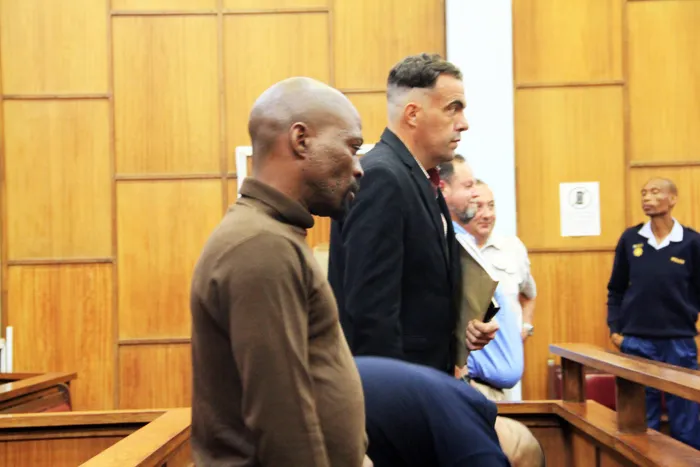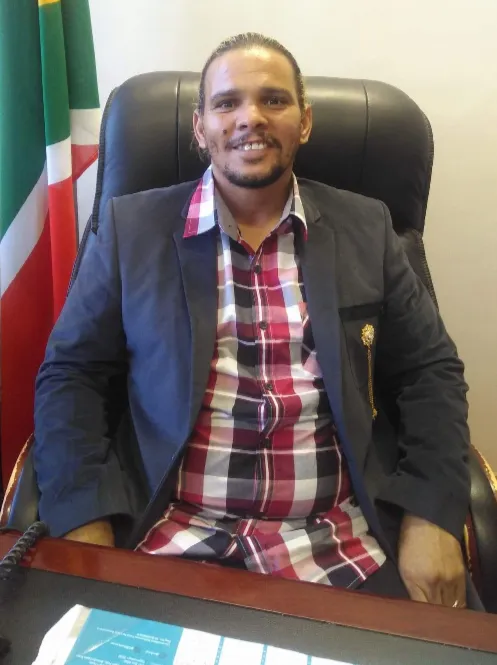Missing DNA evidence threatens to derail murder trial in Northern Cape

Murder accused Butiki Mageboitshe appeared in the Northern Cape High Court on Tuesday.
Image: Sandi Kwon Hoo
A WARRENTON resident accused of killing his partner may walk free if crucial DNA evidence, which has gone missing, cannot be retrieved from the forensic laboratory.
There is a staggering backlog of over 140,000 cases at the national SAPS Forensic Science Laboratory.
The defence this week argued that charges against Butiki Simon Maboitshege should be struck off the roll due to outstanding DNA results.
Maboitshege appeared in the Northern Cape High Court on April 15, where he is facing charges of murder and defeating the ends of justice after he allegedly murdered his partner during a domestic dispute in Warrenton on February 27, 2024.
State advocate Elmari Kruger explained that a DNA exhibit was lost at the forensic laboratory, while a reference sample was not found in the docket.
She added that the laboratory indicated that disciplinary action would be taken against the person responsible for the loss of evidence.
Kruger added that she was obtaining chain statements to ensure that the evidence collected had not been tampered with.
The legal representative for Maboitshege, Heinrich Steynberg, argued that the matter should be struck off the roll amid delays since the trial began on January 27.
“This is while my client remains in custody. The matter was provisionally postponed until February 10. By March 18, the DNA exhibit was still missing. We still do not know whether the forensic laboratory will be able to find or look for this exhibit by the time the matter is set for trial in June. This is a very important exhibit,” said Steynberg.
He also requested that an inquiry be held into the numerous delays.
Northern Cape High Court Judge President Pule Tlaletsi advised against transferring matters to the high court before they are trial-ready.
“It has an impact on the rights of the accused as well as family members of the deceased,” he noted.
Tlaletsi instructed the State to send the investigating officer to the forensic laboratory to search for the exhibit and pointed out that there were charges that needed to be answered to.
He postponed the matter until June 9 and ruled that Maboitshege would remain in custody.
Victims of crime are prejudiced by backlog at forensic laboratory
Community activist Herbert Miller has meanwhile highlighted the case of a 17-year-old patient who was allegedly raped by Congolese medical assistant Dr Ilunga Kalasa during a physical examination in Kimberley in 2022. He stated that the victim had lost hope in the justice system after the matter was struck off the roll in 2023 due to outstanding DNA tests and witness statements.
Kalasa, who was not registered with the Health Professions Council of South Africa, was released from custody in 2023 without any bail conditions.
He faced charges of raping the 17-year-old in August 2022, and of sexually assaulting a 25-year-old patient in April 2021. Another 17-year-old patient had previously withdrawn rape charges against him in 2021.
Further charges of contravening the Immigration Act and the Health Professions Act were added to the charge sheet on September 26, 2022.
The police launched a manhunt, and a warrant of arrest was issued in 2023.
‘Bogus doctor’ cannot be traced
The Minister of Justice and Correctional Services, in response to questions from EFF MP Henry Shembeni as to why a "bogus doctor" who was an undocumented suspect was released, stated that the accused had been red-flagged at South African borders in 2023.
The matter would be re-enrolled as soon as he was re-arrested.
SAPS Northern Cape spokesperson Colonel Cherelle Ehlers confirmed that, to date, the accused had not been traced after failing to appear in court in 2023.
The director of the Shaine Griqua Advice and Development Centre, Shaine Griqua, pointed out that DNA backlogs were delaying the timely prosecution of offenders and hampering the effectiveness of the justice system.
“It poses serious challenges for victims of crime, particularly those affected by gender-based violence and sexual assault,” he said. “Criminals are allowed back onto the streets to potentially commit more offences while jails are overcrowded.
“The delays in processing DNA evidence can reduce the chances of convictions and prolong the trauma of victims.
“The backlog means that some cases may be dropped or dismissed due to a lack of sufficient evidence.”
Griqua noted that South African forensic laboratories were under-resourced, with shortages in personnel, equipment, and constrained budgets.
“We make a clarion call on our provincial government, led by Dr Zamani Saul, to invest in and mobilise resources to construct a forensic laboratory in the Northern Cape. We have the capacity and the skills,” Griqua stated.

Shaine Griqua is advocating for a forensic laboratory to be built in the Northern Cape to address backlogs.
Image: Facebook